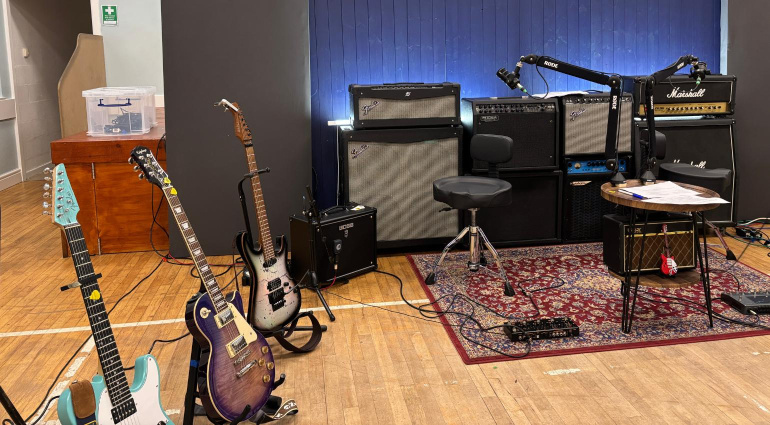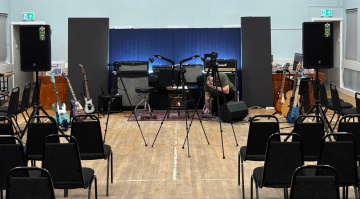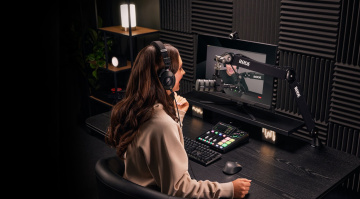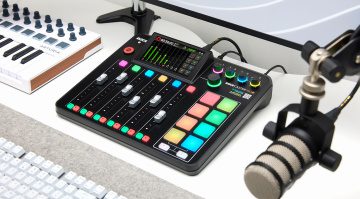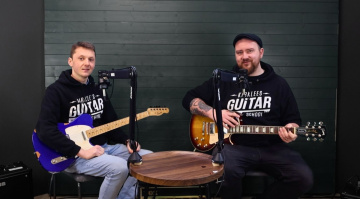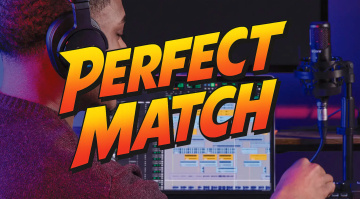Recording a Live Podcast: 5 Steps to a Stress-Free Performance
Lights, camera, action...
Last week, I co-presented a live podcast to a live audience. Here’s what went down, how we did it, and what we’d do to improve next time.
Recording Our Live Podcast:
What is The Kirklees Guitar School Podcast?
Launched in February 2025, The Kirklees Guitar School Podcast is a weekly show that aims to cover all aspects of beginner guitar playing. In addition to artist profiles, looking at hallmark players such as Brian May and David Gilmour. Accompanying a face-to-face business that has been trading since 2018, Kirklees Guitar School serves over 200 guitar, bass, ukulele, drums, piano and group sessions every week.
Moreover, the podcast channel benefits from the support of a private Facebook group, with an ever-expanding community. With 4,000 members and no charge to join, fellow guitarists join to share their feedback, struggles, and progress as players. It’s a great online community that didn’t exist when I was learning to play.
From the success of the online YouTube episodes, myself and fellow presenter, James, decided to host a ticketed event where our audience could come and meet in person, and watch a live recording of the podcast. Here’s how we did it.
Recording Gear
So, if you exclude the live part of this, you’re still left with a regular podcast. Since the show’s conception, we have used the same gear throughout. As/if we gain more traction, perhaps there could be room for upgrades.
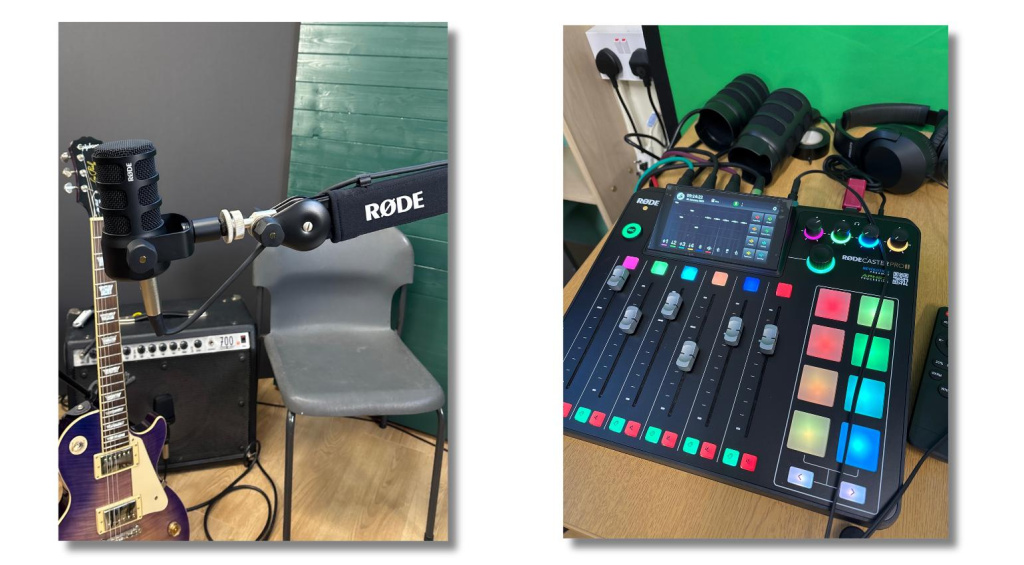
To record our vocal audio, we use a pair of Rode microphones, being powered by a set of cloudlifters for each to boost our signal. From here, we use the trusty *Rodecaster Pro II. This is arguably one of the easiest units to use, and it simply records all of our vocal audio onto a USB drive.

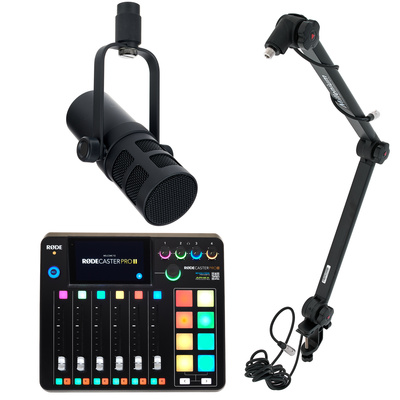

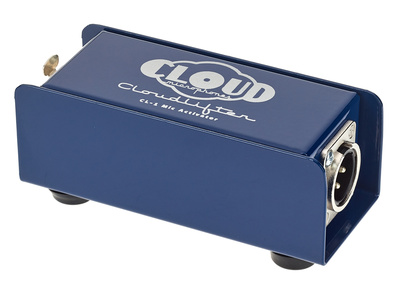
Guitars & Amps
We’ve changed how and what we use to record our guitars over time. For this set-up, I ran through my *NUX Cerberus, going straight into a *Boss Katana Gen 3, which had a mic placed in front of the speaker. As for James, he used his newly acquired *Quad Cortex, plugged directly into logic on his Mac. Allowing us to have control of the guitars.
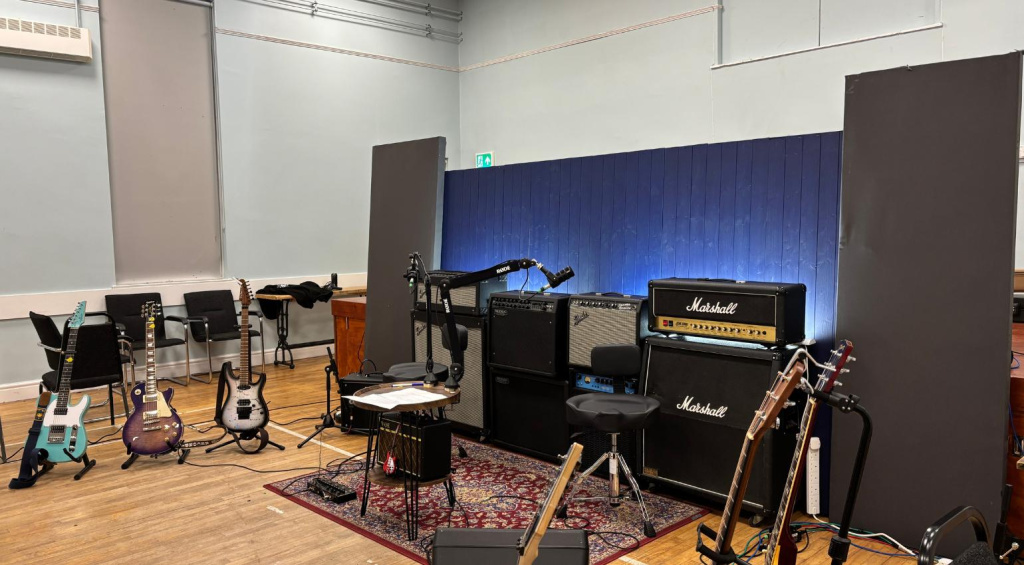
To make our paying audience really benefit from their ticket price, we decided to record two episodes back-to-back. Therefore, multiple guitars were required. I had my 2013 Epiphone Les Paul Standard, which used to be a Blueberry Burst, but has aged wonderfully and is now more of a brown/purple colour. Moreover, I had my *Harley Benton MAX Fusion Signature for all of my divebombing needs. Thirdly, mainly as eye candy, my homemade ‘Fender Telecaster’ in seafoam green with twin humbuckers. This is actually a *Harley Benton kit.
On the other side of the set, James had his Gibson Les Paul, which dates back to the 1980s and weighs more than a small car. Along with a borrowed *Taylor acoustic for lighter playing examples. Concluding with an Ibanez Premium JEM77P Steve Vai, which is currently on a press loan to us from Ibanez.

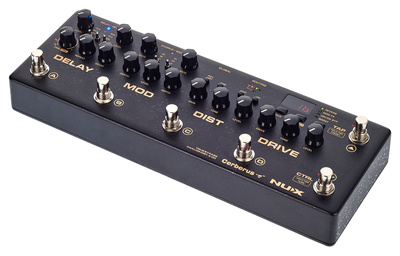

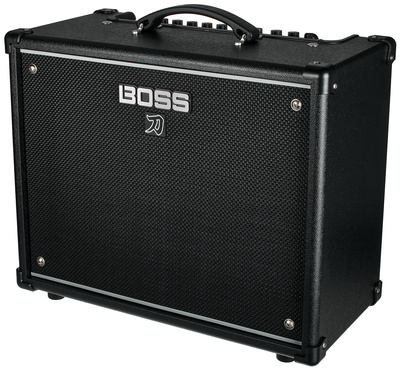

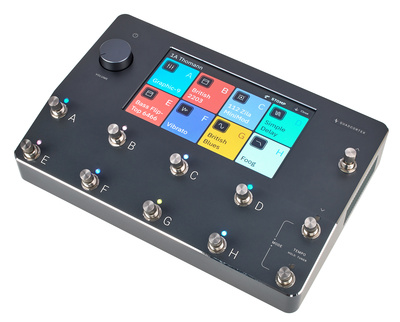



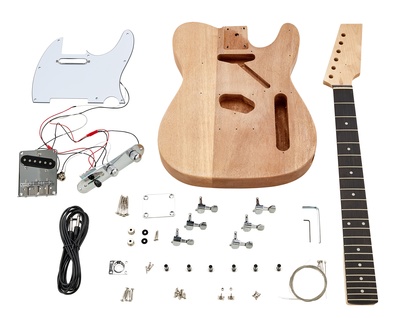

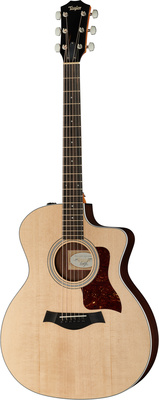
Live Sound
The tricky part was getting what we were recording out to our live audience. We went with the keep it simple, stupid, approach. Simply run a jack to XLR cable from the output of the Rodecaster into our PA desk. From here, we could use twin 1300-watt PA speakers to amplify our vocals to the crowd.
Likewise, with the guitars, we took that audio from our *Focusrite interface and used the output channels from that to also run into the desk. There could be more sophisticated ways to do it, but it worked very well. Allowing the audience to hear us, as well as record the audio for the YouTube episode.

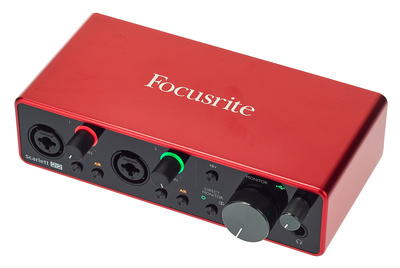

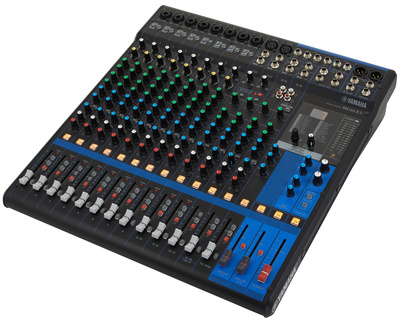

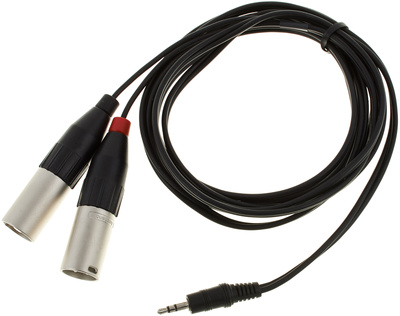
Set Design
For an accurate live podcast recording, we had to transplant our set from the studio where we record to the venue that hosted us. We wanted the audience to experience that real wow factor, seeing what’s usually on their TVs at home.
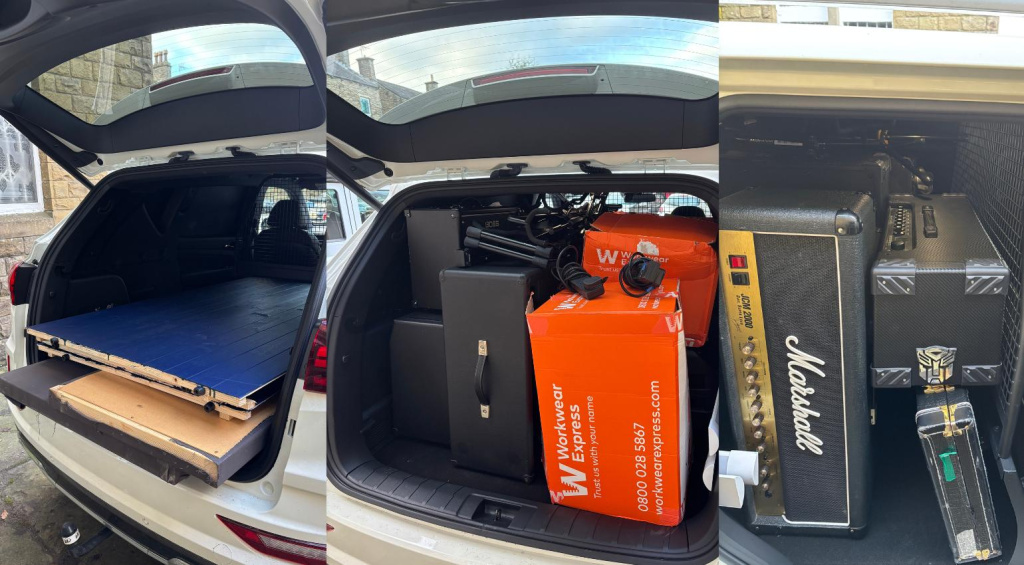
The easy bit was loading the amps, or as we like to call it, ‘Tonehenge’. Consisting of many cool amps, all used for decoration. Most notably, a Marshall JCM 2000 Dual Super Lead, Fender Princetone, a Messa Boogie and an Ashdown bass amp.
Moreover, we needed to transport our chairs, coffee table, and the all-important backdrop of the set. On loan to me as a motoring journalist, we had use of the KGM Rexton Commercial, which has a 700kg payload and 2,200 litres of storage space. It’s safe to say that we needed all of it! Other commercial vehicles are, of course, available.
Audience Participation
How was the actual live event then? From my perspective, humbling. And hopefully, from the audience’s perspective, it was entertaining and informative. Our first episode covered an 8-week plan to improvise on guitar. Whereas the 2nd episode looked at how to use guitar capos and featured a live question-and-answer session.
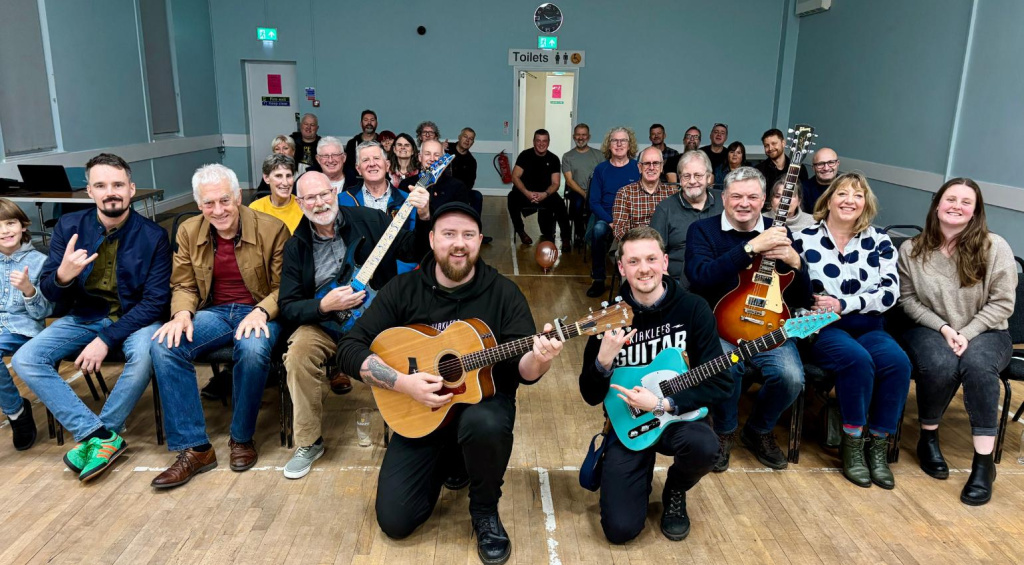
Each week, we feature a segment of the show that we like to call ‘Pick Our Brains’, where we go through some comments from the previous episode. In this live format, we had audience members write down their questions for us to answer face-to-face. Looking back, I wish we’d have had the budget to send a wireless mic around the room to capture the questions that way. There’s always next time.
We don’t have a huge following, but people came from far and wide to see us. Based in the North of England, we had fans come from hundreds of miles away. Someone even came from Spain. Now that’s commitment.
Where to Watch the Live Podcast
So, here it is! The first of two live episodes that we recorded. You’ve seen the how and the why, but here’s the actual episode. Just excuse the slight mess of Jessica at the start… Live nerves? You’ll have to look out for the second instalment that will come in a few weeks.
Further Information:
- Music Production from YouTube
- 5 Cool Backing Tracks to Help Practice Your Scales
- The Best Podcast Mixers
*This post contains affiliate links and/or widgets. When you buy a product via our affiliate partner, we receive a small commission that helps support what we do. Don’t worry, you pay the same price. Thanks for your support!

 5,0 / 5,0 |
5,0 / 5,0 | 